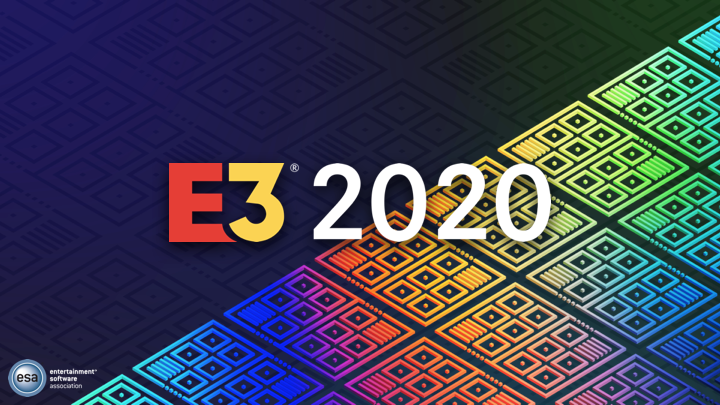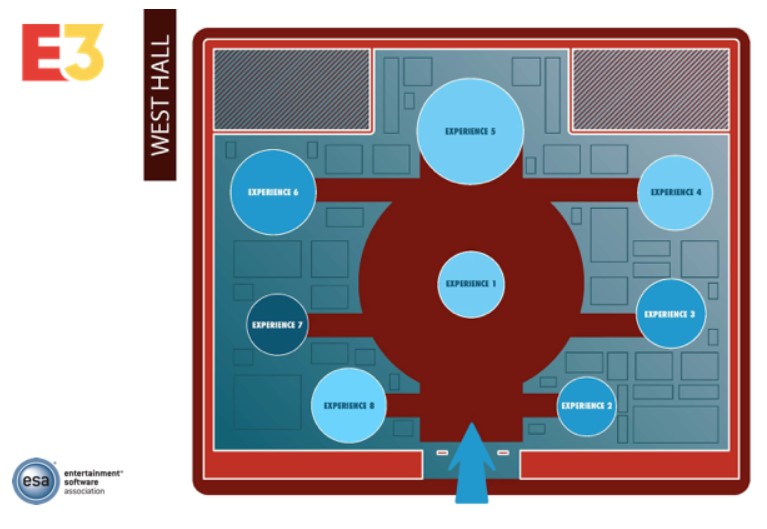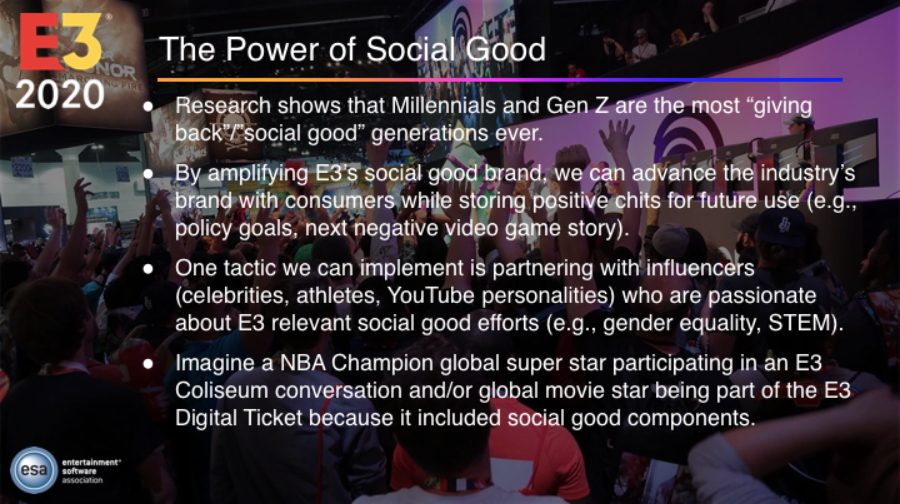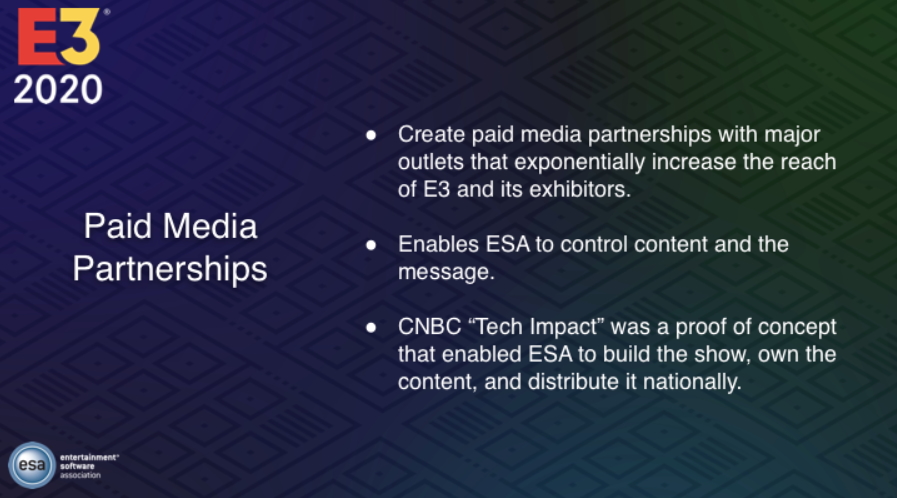
Details of an alleged planning document for E3 2020 have leaked, showing the Entertainment Software Association (ESA) new plans for the event next year.
GameDaily.Biz reports that ESA members are adapting based on feedback from publishers. The “overhaul” will allegedly includes “leaning into” influencers and paid celebrity deals.
Two examples include members of the Los Angeles Lakers playing a basketball video game in front of fans, or actors competing in tournaments. Later in the discussion, the idea of paying celebrities was shot down, and the proposal they would be “invited through an organized program” was utilized instead.
The alleged presentation also included an example of the LA Convention Center’s West Hall with eight “experience hubs” along with traditional booths. This new plan was allegedly approved by ESA members.

The ESA’s goal with the overhaul is allegedly in the hope of creating “exclusive/appointment only activations [attractions and events] for select attendees who will create buzz and FOMO [Fear of Missing Out].”
Another alleged plan is to introduce an industry-only day during the first day of E3, with the general public and tickets on the two subsequent days. This is akin to how Gamescom runs- with press and industry attending the first day with less queuing.
It seems some of these plans may not be going over well with other members and associates of the ESA. The group’s unnamed publisher partners rejected the idea of a “PlayStation Experience-like movie theater experience.”
In spite of this and some of the above, there are allegedly “a number of consumer-focused plans on the table.” This includes ways to mitigate long lines, such as a digital app operating akin to Disney theme park’s FastPass system (registering for a demo at a time slot, then returning later at that time), and “queuetainment”. The app would provide consumer data, while the latter would have a “captive audience.”
The alleged presentation leak included a slide, focusing on “The Power of Social Good.” With the claim that research shows “millennials” and “generation Z” are the most “giving back / social good” generations ever, that they can be capitalized on. In short, they hope by appealing to major social issues that can generate positive press. They even hope the aforementioned celebrities will attend due to these causes.

An alleged later slide even goes as far as to suggest influencers (celebrity or otherwise) could be tempted via ways to support charitable efforts instead of pay. In return, those influences would offer the event “validation, attention, and excitement across media outlets beyond the video game space.”
Another alleged slide focused on “Paid Media Partnerships.” In short these would be advertisements, much like the funded segments on CNBC’s Tech Impact. Curiously, those episodes (available here) do not disclose that the content was a paid promotion by the ESA (a lobbying group).

Finally, there was an alleged goal to “win back the trust” of media partners, after a data breach leaked the personal information of attendees. GameDaily allegedly attempted to contact the ESA, and received no response.
This need to overhaul may come from attendee numbers. According to Niko Partners Senior Analyst Daniel Ahmad, E3 2019’s 66,000 attendees were dwarfed by the top seven gaming exhibitions and trade shows- ranging from 373,000 (Gamescom) to 235,000 (G-Star Korea). Other conferences included ChinaJoy, Brazil Games Show 2018, Taipei Game Show. Paris Games Week and Tokyo Game Show 2019.
These changes (if true) seem to be heavily inspired from many areas: Rivals such as Gamescom, theme parks, using social causes to further attention, and celebrity endorsements. The latter was most-likely inspired by E3 2019’s appearance by Keanu Reeves to show off Cyberpunk 2077. Ironically, Reeves would later go on to state that video games did not require Hollywood actors to be legitimized.
We will keep you posted as we learn more.
Back in 2017, we heavily criticized E3’s major security flaws. You can read that editorial here.